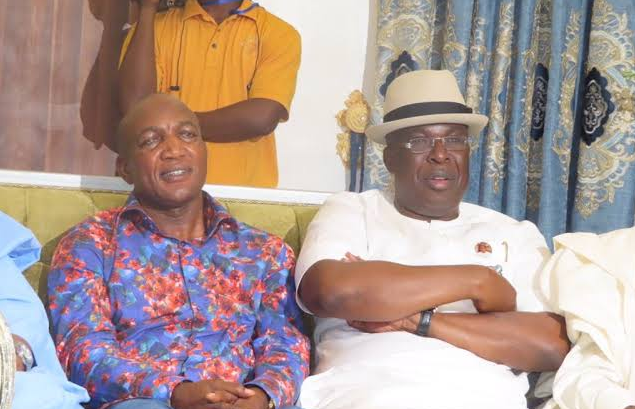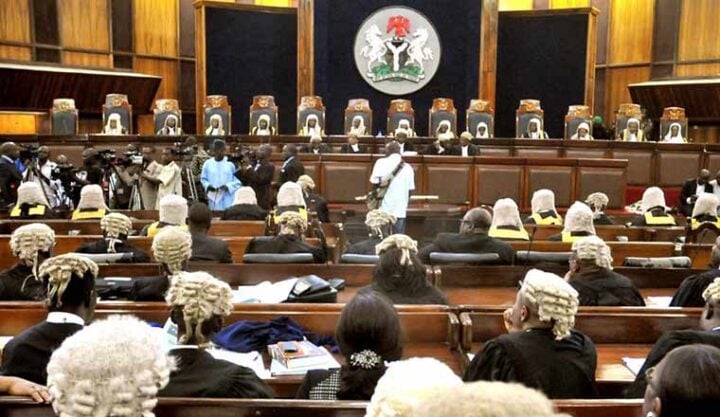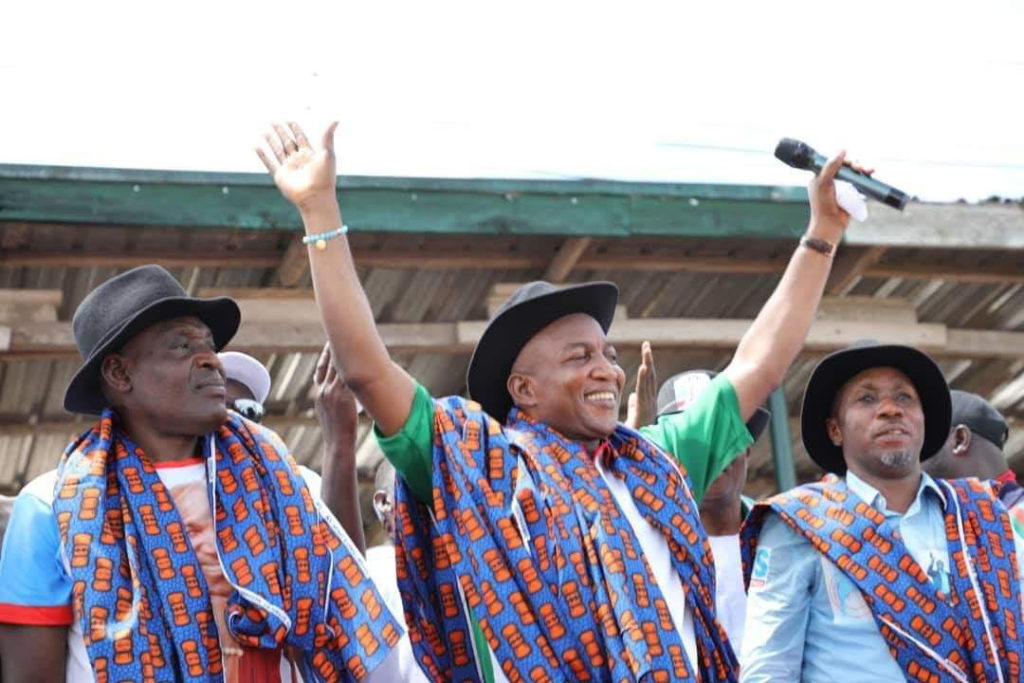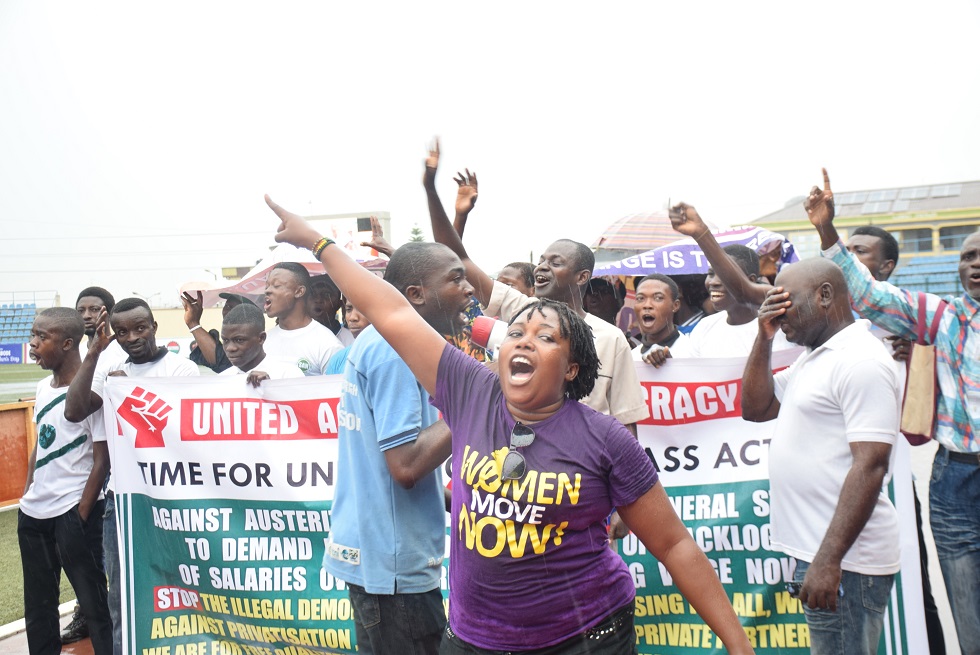I have perused the judgment of the supreme court of Nigeria delivered on Thursday, the 13th day of February, 2020 in the case between Peoples Democratic Party (PDP) & 2 Ors. V. Biobarakuma Degi-Eremienyo & 3 Ors.
The supreme court in its 24 pages lead judgment delivered by His Lordship, Ejembi Eko, JSC, made a consequential order directing the 4th respondent, the Independent National Electoral Commission (INEC), to withdraw the Certificate of Return earlier issued to the Governorship and Deputy Governorship candidates of the All Progressives Congress (APC), Mr. Lyon David Pereworimin and Mr. Degi-Eremienyo respectively, and to issue a fresh “Certificate of Return to the candidate who had the highest number of lawful votes cast in the Governorship Election and who also had the requisite constitutional (or geographical) spread.”
As expected, the judgment has ignited intense legal controversy and political debates in the country with commentators offering differing views on the matter.
The case against Degi-Eremienyo:
Advertisement
The issues arising from this judgment may be best appreciated if one is seized of the relevant facts, findings and conclusions which birthed the consequential orders disqualifying the APC governorship candidate and his running mate, thereby truncating their “victory” at the polls and replacing them with the candidate that scored the (second) highest number of lawful votes cast.
The stunning facts against Mr. Degi-Eremienyo upon which the reliefs sought by the PDP and its candidates were predicated are as follows:
i. The name in his First School Leaving Certificate issued in 1976 was DEGI, BIOBRAGHA;
Advertisement
ii. His WAEC/GEC, 1984 bears the name ADEGI BROKUMO;
iii. His First Degree bears the name DEGI BIOBARAKUMA WANGAWA;
iv. In his Affidavit of Correction and Confirmation of Name sworn to 9th August, 2018 he asserted that his correct name is BIOBARAKUMA DEGI;
v. In another Affidavit of Regularisation of Name sworn to on 18th September, 2018 he averred that his correct name is BIOBARAKUMA WANAGHA DEGI ERKMIENYO;
Advertisement
vi. In another Affidavit of 18th September, 2018 deposed before an unnamed Notary Public on a letter Heading: Stanley Damabide & Partners he averred that while registering for WASCE examination “the alphabet “A” was inadvertently added to (his) surname to read thus – Biobarakuma Wanagbe Adegi and same captured in the Certificate he obtained therefrom. (The 1984 WAEC/GCE however bears the name ADEGI BIOBAKUMA – not Biobarakuma Wanagbe ADEGI);
vii. In the said Affidavit of 18th September, 2018 he further averred that later in time he took Chieftaincy title and by Nembe Custom he added Eremienyo to his surname and his full name reads – BIOBRAKUMA WANAGHA ADEGI-EREMIENYO;
viii. On the Statutory Declaration of Age dated 31st July, 1990 it was declared that the 1st Respondent bearing the name BIOBARAKUMA DEGI was born on 22nd February, 1959. The deponent Henry Vanman, described himself as the uncle of Degi-Eremienyo;
ix. On his form CF001 the 1st Respondent gave his name as DEGI-EREMIENYO, BIOBARAKUMA WANAGHWA;
Advertisement
x. By the Change of Name published in Chronicles Newspapers of 20th July 2018 the 1st Respondent announced the change of his name from BIOBARAKUMA WAMAGHA DEGI to BIOBARAKUMA WANAGHA DEGI-EREMIENYO.
The supreme court in its judgment agreed with the findings of the lower court to the effect that:
Advertisement
1. “The affidavit of Correction and Confirmation of Name of 9th August, 2018 was a fraudulent attempt to correct the name on the First School Leaving Certificate issued in 1976 and the WAEC/GCE Certificate issued in 1984.”
2. “The only authority competent to correct anything on those Certificates was the authority that issued either Certificate and that the Affidavit of Correction of Name does not in his opinion, conform to the proper manner of changing name or correcting a name on a Certificate, and that it is only by Deed Poll, and not by mere deposition that a name on an official Certificate can be effected and further that the procedure necessarily affects official Record and Archives of the nation. That it is after the Deed Poll that the deponent approaches the Nigerian Civil Registry to have the change published in the official gazette. None of these procedures had been done by the 1st Respondent.”
Advertisement
The supreme court further agreed with the trial court that the Affidavit of Regularisation deposed to on 18th September, 2018 before another notary public was invalid and fraudulent because the said notary public could not be verifiably identified since his name was not stated in the affidavit.
The apex court reinstated the finding of the trial court that “the 1st Respondent having not approached the lawful authorities that issued the First Leaving Certificate in 1976 and WAEC that issued the 1984 GEC Certificate the 1st Respondent, brandishing Certificates that do not carry his name and using affidavits to assert his ownership of the Certificate does so in error and fraudulently”. The court accordingly held that the affidavits were bereft of any probative value.
Advertisement
Finally, the supreme court validated the conclusion of the trial court that “there was no nexus between the name of the 1st respondent on his form CF001 and the various Certificates (including the first degree certificate from Rivers State University of Science and Technology, NYSC Exemption Certificate of 2nd October, 1990, the Award of Masters in Business Administration (MBA) Degree dated 14th February, 2002; and that the 1st respondent’s name in Form CF001 is not the same name on the statutory declaration of age of 1st July, 1990.”
These hard facts were not disputed by Degi-Eremienyo (the 1st respondent). He actually admitted these facts. He also failed to specifically appeal against the findings made by the Federal High Court against him on the correct procedure for change of name on official certificates.
Degi-Eremienyo had a bad case:
From a dispassionate standpoint, it is difficult to fault the reasoning of the supreme court on the point that Degi-Eremienyo gave false information to INEC.
Degi-Eremienyo knew that his certificates were questionable. This is inferable from his belated efforts to cure the apparent contradictions in those certificates through series of questionable affidavits. This was a case where an affidavit meant to explain contradictions in documents, also contradicted another affidavit meant for the same purpose. Simply put, it was not only a juvenile but failed attempt at self-redemption, but also an amateurish expedition to conceal fraud and forgery.
There is nothing that could have been done to salvage the case of Degi-Eremienyo and the APC. Their case was not only bad; it was incurably bad.
It is one thing for a person to bear multiple names. It however becomes a legal problem when the multiple names appear on different official documents, and the efforts to explain the contradictory names leads to more contradictions. Degi-Eremienyo had all the time in the world to approach the authorities that purportedly issued those certificates to him to regularise the contradictions and alleged errors if he actually earned them, he did not do so.
It may be uncanny for a person not to be sure of his name, it becomes an issue of fraud when a man presents official documents bearing conflicting names and his attempts to explain the conflicts are also conflicting, dubious and untenable. In litigation, it is not permissible for a party to blow hot and cold. “A party must be consistent in his litigation. He is not allowed to approbate and reprobate on one issue”: See NGIGE v. OBI (2006) 14 NWLR [Pt.999] 1 at 197.
Should Lyon be punished for the sins of his running mate?
Many have queried why the sins of a running mate should have the perilous effect of vitiating the candidacy of the governorship candidate? This is an interesting question. The answer is not farfetched.
Section 187 (1) and (2) of the Constitution of the Federal Republic of Nigeria, 1999 (as amended) offer a direct answer. It provides as follows:
“(1) In any election to which the foregoing provisions of this part of this Chapter relate, a candidate for the office of Governor of a State shall not be deemed to have been validly nominated for such office unless he nominates another candidate as his associate for his running for the office of Governor, who is to occupy the office of Deputy Governor; and that candidate shall be deemed to have been duly elected to the office of Deputy Governor if the candidate who nominated him is duly elected as Governor in accordance with the said provisions.
(2) The provisions of this Part of this Chapter relating to qualification for election, tenure of office, disqualifications, declaration of assets and liabilities and Oath of Governor shall apply in relation to the office of Deputy Governor as if references to Governor were references to Deputy Governor.
The implication of the foregoing constitutional provisions are apposite in the instant case.
A governorship candidate must nominate an associate (or running mate) who is to occupy the office of deputy governor. A political party cannot participate in a Governorship election except it has validly nominated her Governorship and Deputy Governorship candidates who must satisfy the constitutional requirements for the election.
Section 187 of the constitution reproduced supra provides for a joint ticket; the governorship candidate and his deputy will swim or sink together.
As far as the November 2019 gubernatorial election is concerned, their destiny was conjoined. It should be emphasised that a governorship candidate and his Deputy are subject to the same qualification – in terms of citizenship, age, educational attainment and membership of a political party.
Why did the supreme court not order a fresh election?
It has been suggested that the supreme court should have ordered INEC to conduct a fresh or bye election, instead of ordering INEC to issue certificate of return to the candidate with the highest number of valid votes cast in the November 2019 Bayelsa election. This argument is founded on the idea that it is the electorates, and not the courts that should determine who should lead a State.
I watched the APC national chairman on national television canvassing this argument. Comrade Adams Oshiomhole cited a decision of the court of appeal in 1999 (which he wrongly credited to the supreme court) in a case involving a former PDP national chairman and former Bauchi state governor, Mr. Adamu Muazu, whose election was voided and a fresh election ordered following the disqualification of his running mate.
The case under reference is reported as BALEWA V. MUAZU (1999) 5 NWLR (PART 603) PAGE 636. In that case, the appellant Alhaji Adamu Tafawa Balewa who was the candidate of the then All People’s Party (APP) challenged the return of the PDP candidate Alhaji Ahmed Adamu Muazu and his running mate, Alhaji Kaulaha Aliyu in the Bauchi state governorship election conducted on the 9th of January, 1999 on the ground that his running mate was disqualified on grounds of dismissal from the civil service.
In that case, the election tribunal dismissed the petition but the Court of Appeal allowed Balewa’s appeal and declared the election null and void. The court held that the disqualification of the deputy governor elect also disqualified the governor elect since they were elected on a joint ticket. INEC conducted a bye-election.
Balewa brought an application before the Court of Appeal for a review of its judgment and sought “An order to clarify or direct whether the applicant is not entitled to be returned as Governor elect of Bauchi State, the election of the 1st and 2nd respondents having been nullified as per the judgment of this honourable court delivered on 20/3/99. He also sought “A consequential order nullifying the Bye Election conducted on the 10th April. 1999.”
In dismissing the application, the court of appeal held that the application amounted to an abuse of court process since a similar application was pending before the Federal High Court. The court of appeal in refusing Balewa’s application further held that:
“To do otherwise and accede to the request of the applicant to declare him as elected will certainly amount to an imposition on the electorate. To do that will negate all the known principles of democracy. Democracy demands that any person wishing to rule must get the mandate of the people. There are no two ways about it. “
The above pronouncement of the court of appeal in its ruling on Balewa’s application for review is reported separately by Law Pavilion as BALEWA v. MUAZU & ORS (1999) LPELR-6515(CA) at page 14, paras. A – C.
Oshiomhole is not a lawyer and can be excused for his erroneous reliance on Muazu’s case. As profound as the above reasoning of the court of appeal was in the Muazu’s case, it cannot be the basis for faulting the decision of the supreme court in the Bayelsa case for the following reasons:
First, a case is only an authority for what it decides: See INEC & ANOR. V. RAY (2004) 14 NWLR (Pt. 892) 129. Second, by the doctrine of judicial precedent and the hierarchy of our courts, a decision of the Court of Appeal is not binding on the Supreme Court. Third, one of the principal reasons why the Court of Appeal did not order INEC to issue certificate of return to Balewa in the Muazu’s case was that the issue of “lawful votes” and “wasted votes” was not considered in the main judgment. Balewa belatedly argued that the votes cast for Muazu and his running mates were wasted votes and that he was the one who scored majority of “lawful votes” in his post-judgment application for review; he did not canvass that point in his petition before the election tribunal.
Fifth, while Muazu’s case was a post-election matter, the Bayelsa case was a pre-election matter which arose before the November 2019 Bayelsa election. Pre-election cases usually raises issues affecting the propriety of a candidate’s or political party’s participation in an election.
Sixth, the supreme court at page 22 of its lead judgment specifically declared that both the governorship candidate and his running mate are “deemed not to be Candidates at the Governorship Election conducted in Bayelsa State”. The apex court made a consequential order directing INEC to issue Certificate of Return to the Candidate “with the highest number of lawful votes cast with the required constitutional (geographical spread)”.
In essence, the doctrine of wasted votes enunciated by the supreme court in several pre-election cases, including its recent judgment in appeal No. SC/377/2019 between ALL PROGRESSIVES CONGRESS (APC) & ANOR. V. SENATOR KABIRU GARBA MARAFA & 179 ORS delivered on the 24th day of May, 2019 in respect of the 2019 elections in Zamfara State was applied in the Bayelsa case. The argument that the Supreme Court did not specifically declare the votes cast for APC as wasted is therefore misplaced.
The only legally plausible conclusion to be drawn from the declaration of the supreme court that Mr. Lyon David Pereworimin and his running mate, Mr. Degi-Eremienyo, were not candidates in the election and the consequential order for the candidate with the “highest lawful votes” to be issued Certificate of Return by INEC, is that votes that were cast for the APC and its candidates were wasted votes.
I align myself with those who contend that the jurisprudence of wasted votes undermines the will of the people. However, that is an academic argument. The law today is firmly established in favour of declaring votes cast in favour of candidates and parties whose disqualification has been judicially established as wasted votes. There is no academic argument that can overturn this trite position of the supreme court. Lawyers and indeed the public are entitled to their opinions but the law is what the court, particularly the supreme court says it is.
I am not unmindful of Section 140 (2) of the electoral act, 2010 (as amended) which provides thus:
“Where an election tribunal or court nullifies an election on the ground that the person who obtained the highest votes at the election was not qualified to contest the election, the election tribunal or court shall not declare the person with the second highest votes as elected but shall order a fresh election.”
The expression “an election tribunal or court” as used above only applies to post-election cases: see Section 133 (2) of the Electoral Act.
The supreme court did not nullify the Bayelsa governorship election. Section 140 (2) of the Electoral Act does not apply to pre-election cases like the case of Bayelsa state: see the Supreme Court decision in the earlier case of SALEH VS. ABAH (2018) ALL FWLR (PART 933) Page 944. An order for fresh election can only be made after an order nullifying the election has first been made. See AGBAJE V. INEC (2015) LPELR-25651(CA). Except when hearing appeals from the Court of Appeal in respect of a decision from an election tribunal (like in the recent Imo State case), the Supreme Court has no jurisdiction to nullify election. See AMAECHI V. INEC (2008) 5 NWLR (Pt. 1080) 227.
Could this have been avoided?
The point should be stressed that the supreme court did not determine that Mr Degi-Eremienyo did not meet the educational qualification for election into the office of governor. By the judgment of the Supreme Court in the case of Atiku Abubakar & Anor. V. Muhammadu Buhari & 2 Ors. (2019), a candidate is not bound to attach educational certificate; a simple affidavit would suffice.
With the precedent set by the supreme court in Buhari’s case, it would have been sufficient for Degi-Eremienyo to merely state in his affidavit that he was educated up to at least School Certificate level or its equivalent as required in Section 177 (d) of the constitution. That would have possibly averted this Bayelsa conundrum.
As history has shown, Nigerian politicians prefer to forge educational certificates in their desperation to prove their over-qualification, than rely on their duly earned elementary school certificates. This validation seeking and duplicitous proclivity, has become the albatross and nemesis of forgery prone candidates like Mr. Degi-Eremienyo.
The issue for determination before the Supreme Court in the Bayelsa case was whether Mr. Degi-Eremienyo had given false information in the affidavit and documents he submitted to INEC. The Appellants’ (the PDP and its candidates) cause of action was rooted in Section 31 (5) of the Electoral Act, 2010 (as amended) which provides as follows:
“A person who has reasonable grounds to believe that any information given by a candidate in the affidavit or any document submitted by that candidate is false may file a suit at the High Court of a State or Federal High Court against such person seeking a declaration that the information contained in the affidavit is false.”
That was precisely what the PDP and its candidates did when they approached the federal high court in Abuja seeking a declaration that the information which Mr. Degi-Eremienyo submitted to INEC in support of personal particulars of person seeking election to the office of the Deputy Governor of Bayelsa State (Form CF001) was false, contrary to Section 31 (5) of the electoral act (as amended).
By Section 31 (6) of the electoral act, if the court finds, as it did in this case, that the information submitted is false, it is bound to disqualify that candidate.
Conclusion:
Rather than dissipate funds and valuable time in pursuit of ill-fated “legal redress”, Oshiomhole and the APC should engage in deep introspection. This should be a good time for self-censorship by the APC as a political party. How was it possible for Mr. Degi-Eremienyo to successfully pass the scrutiny of the APC governorship primary screening committee for the Bayelsa state governorship election? This is the question that the party should honestly answer. Did he bribe his way through or was the screening committee terribly incompetent that they could not dictate the manifest irregularities in the conflicting documents submitted to the screening committee by Mr. Degi-Eremienyo?
The Supreme Court has consistently punished political parties for their recklessness, impunity and gross disregard for due process. Unfortunately, the so-called major parties have persisted in their criminal ways of doing things and the court should never shy away from making them to pay a heavy price where the justice of the case so requires.
In the case of Saleh V. Abah (2018), the Supreme Court said the following on the ugly trend of certificate forgery by politicians:
“…Allowing criminality and certificate forgery to continue to percolate into the streams, waters and oceans of our national polity would only mean our waters are and will remain dangerously contaminated. The purification efforts must start now, and be sustained as we seek, as a nation, to now change from our old culture of reckless impunity. The Nigerian Constitution is supreme…”
Nigeria is overdue for a comprehensive electoral reform. The Buhari regime should take electoral reforms seriously and stop shying away from this important responsibility. I empathise with the people of Bayelsa state whose constitutional right to elect a governor of their choice may have been derogated. However, the law has no room for sentiments. The solutions lies in the national assembly and the president, not in partisan grieving.
Effiong, a Lagos-based lawyer, can be reached via: [email protected]
Views expressed by contributors are strictly personal and not of TheCable.
Add a comment







